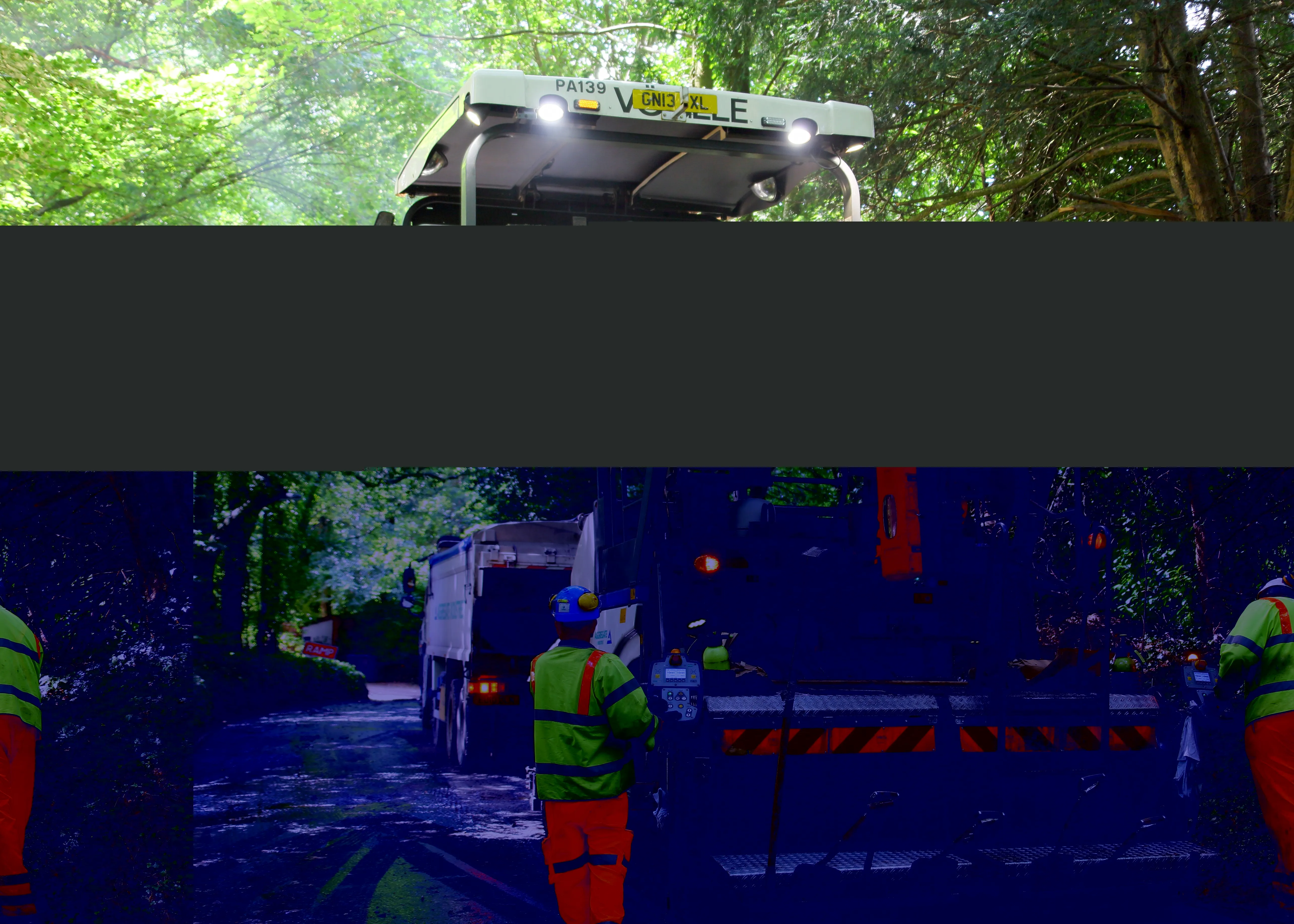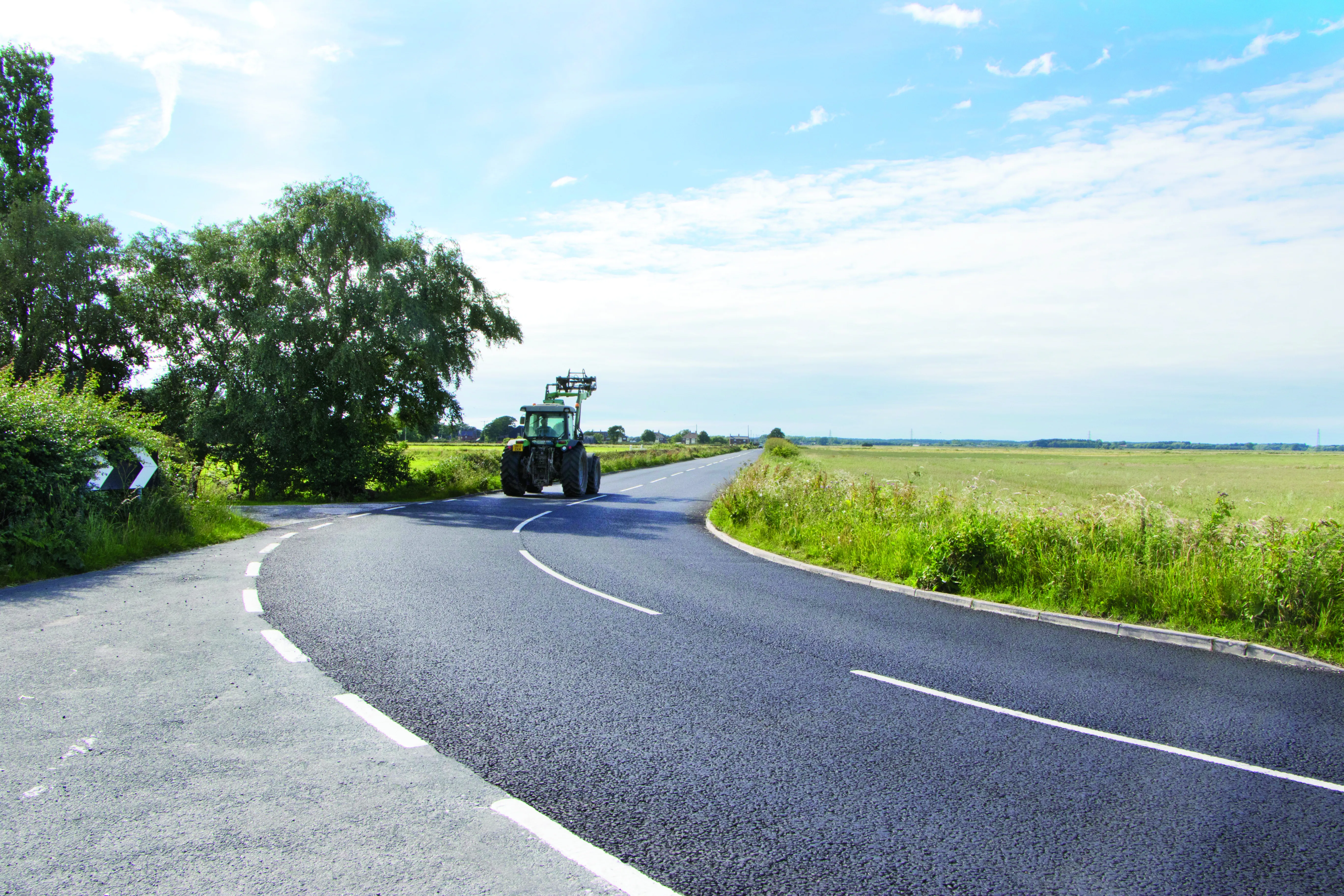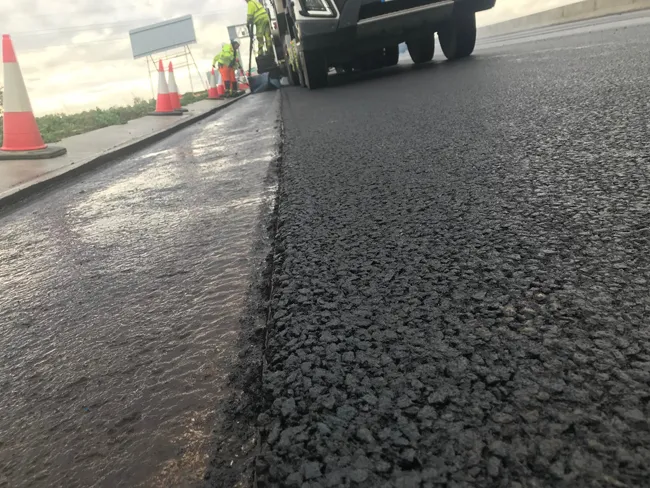
Aggregate Industries is backing calls in the UK for low-carbon road surfacing, especially the use of warm mix asphalt, as part of sustainable road strategies.
Earlier this month, the UK government’s All-Party Parliamentary Group on Highways – consisting of elected politicians from all parties - released a report calling for the widespread adoption of warm mix asphalt.
At the moment, warm mix, accounts for just 4% of asphalt production in the UK. The figure is significantly lower than other developed nations. In the US 40% of asphalt is warm mix and in France it stands at 15%.
As it is laid at lower temperatures than traditional asphalt, warm asphalt uses less energy and cools to usable temperatures faster. This reduces the duration of roadworks and cuts CO² emissions by up to 15%. As a result, this not only improves productivity for contractors but tackles congestion by ensuring traffic flows more smoothly – which the all-party group stated will be “welcomed by the public”.
Aggregate Industries, which recently launched its own low temperature asphalt called Superlow*, backs the group’s recommendations. While opting for warm mix will go a long way to reducing the environmental impact of road construction, decision makers also need to take a more holistic approach to sustainability, noted the company. This approach would prioritise low-carbon processes in all aspects of a project.
“Under the Construction Sector Deal, the UK has ambitious targets to halve emissions in the built environment by 2025,” said Bob Allen, head of research and development and technical services at Aggregate Industries. “The pressure on the road construction industry to become more environmentally friendly is now greater than ever before,” he said.
“As such, local authorities, highways agencies and other contractors must take action now, firstly by taking heed of the All-Party Parliamentary Group’s report. It estimates that if all asphalt production in the UK were switched to warm mix, it would save at least 61,000 tonnes of CO² each year - the equivalent of almost 300 million car journeys.”
But Allen noted that the report cited red tape and a reluctance to try new ideas as key barriers to the adoption of more warm mix asphalt. “It’s more than just about materials,” said Allen. “Clearly then, as an industry we still have a huge job to do in incorporating sustainability into all aspects of road construction including investment in cleaner automated road surfacing machinery and greener waste management practices.”
For instance, as part of its circular economy initiative, Aggregate Industries used nearly 800,000 tonnes of recycled asphalt pavement (RAP) in 2018, which reduced reliance on imported bitumen and quarried aggregates. The process to produce RAP involves removing old road surfaces, reprocessing them to a suitable size and then adding this material into the new asphalt mix, to be used as replacement road surface.
“The good news is that when it comes to finding a more eco-friendly alternative, in many cases there’s no need to wait for a silver-bullet solution as many of the products, practices and technology are already available. It’s just a case of making the most of the latest innovations,” he said. “After all, with the government’s recent pledge to achieve net zero emissions by 2050, if we are to successfully transition to a low-carbon society, we will all need to do our bit.”
Aggregate Industries produces and supplies construction materials including aggregates, asphalt, ready-mixed concrete and precast concrete products. It also produces, imports and supplies cementitious materials and offers a national road surfacing and contracting service. The company, part of the LafargeHolcim Group, became the first company in the UK to be certificated to BES 6001, the Framework Standard for the Responsible Sourcing of Construction Products. The framework was developed by the BRE, the Building Research Establishment.
Aggregate Industries is also a founding member of the UK’s Green Building Council which now has around 400 member organisations involved in all aspects of the national built environment.
*Aggregate Industries’ market-leading Superlow is a low temperature asphalt enabling quicker, more environmentally-friendly project completion. This range of asphalt is mixed between 20°C and 40°C lower than hot mix asphalt, while offering the equivalent performance characteristics of hot mix asphalt.









